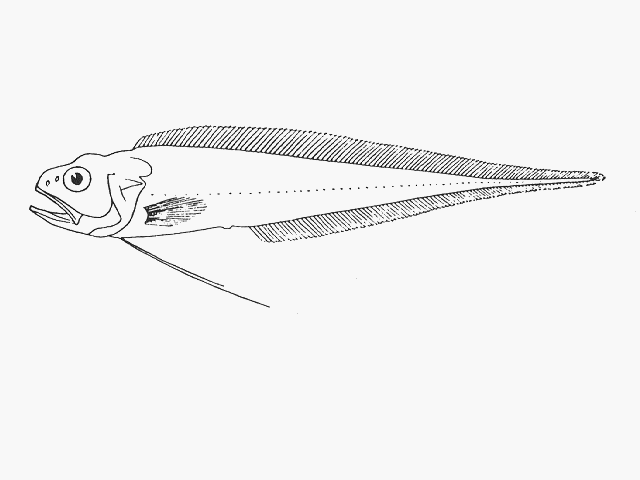| Ophidiidae (Cusk-eels), subfamily: Neobythitinae |
| 26 cm SL (male/unsexed) |
|
bathydemersal; marine; depth range 360 - 825 m |
| Western Indian Ocean: frequently encountered on the upper part of the continental slope off East Africa, reaches south to Bazaruto Island in Mozambique. Ranges extends to Durban, South Africa (Ref. 11228). |
|
Dorsal spines (total): 0-0; Dorsal soft rays (total): 121-145; Anal spines: 0-0; Anal soft rays: 96-115. Prominent head and body with an attenuate caudal part; head bones with large, thin crests; eye equal to or greater than length of snout; opercular spine broad, flat and weak; basibranchial with 2 median and a pair of tooth patches; long gill rakers on anterior arch 21 to 41 (Ref. 34024). Caudal fin rays 7-8; stem of pseudobranchial filaments dark (Ref. 34024). |
| Common species (Ref. 34024). Oviparous, with oval pelagic eggs floating in a gelatinous mass (Ref. 205). |
|
Least Concern (LC); Date assessed: 15 August 2019 Ref. (130435)
|
| harmless |
Source and more info: www.fishbase.org. For personal, classroom, and other internal use only. Not for publication.
